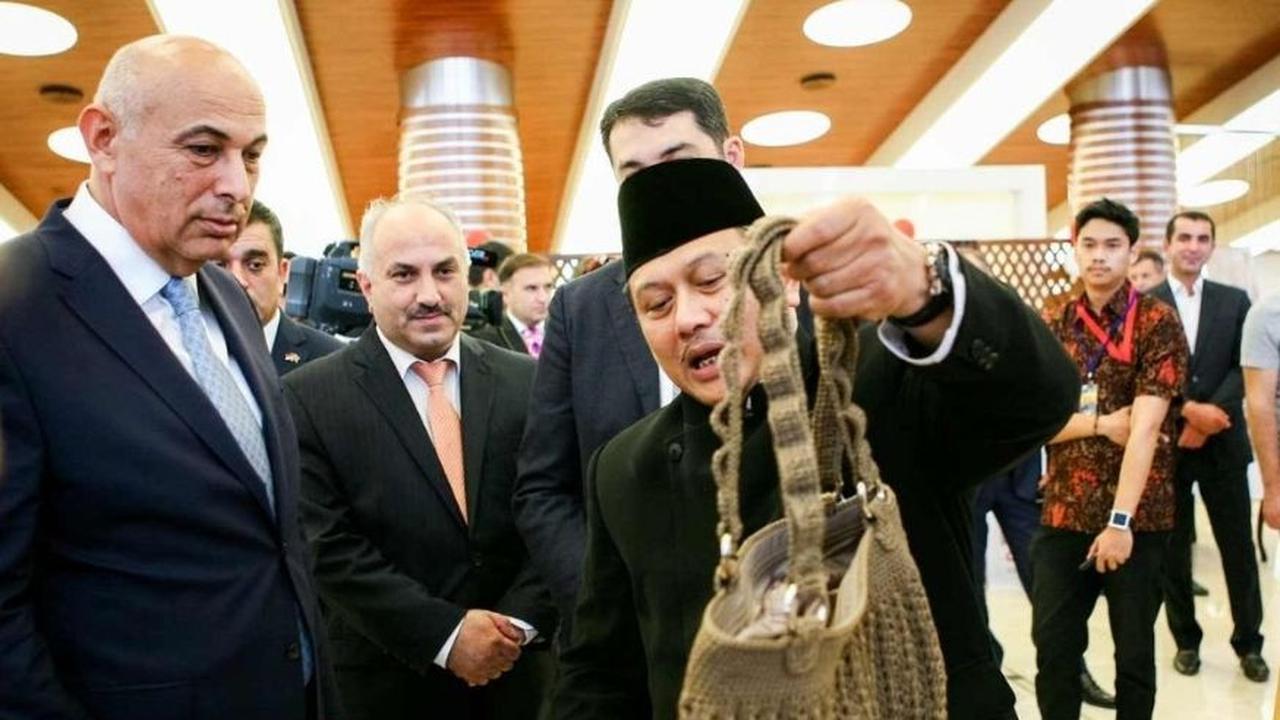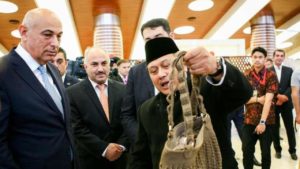Jakarta, MINA — Indonesian Ambassador to Azerbaijan Husnan Bey Fananie launched a research along with lecturers and researchers from University of Indonesia`s Faculty of Cultural Sciences Maman S. Mahayana, Ali Akbar, Bastian Zulyeno, Ghilman Assilmi, and Chaidir Ashari.
The research covers the history of the entry of Islam in the Archipelago from the Caucasus region, especially Azerbaijan.
“As the ambassador of the Republic of Indonesia to Azerbaijan, assisted by lecturers and researchers from the Faculty of Cultural Sciences, University of Indonesia will conduct a research on the history of the entry of Islam in Indonesia,” Ambassador Fananie told Antara via a short message service received here, Saturday.
Also Read: Indonesian Navy Prepares Three Hospital Ships for Humanitarian Mission in Gaza
The ambassador elaborated that the study will explore the cultural similarities found in Indonesia and Azerbaijan.
“The similarity of material cultures in both countries show the possibility of the influence of the Caucasus in the process of the entry of Islam into the archipelago,” Ambassador Fananie stated.
Meanwhile, Zulyeno, who had conducted a preliminary study some time ago, believes there is a connection between the people of Azerbaijan and Indonesia, as is apparent from the similarity of ancient gravestones found in both countries.
In Indonesia, the ancient gravestones were found in Barus in North Sumatra and Aceh.
Also Read: Floods Spread in North Aceh, Eight Districts Submerged
“I have conducted field observations in the Sundu and Maraza areas in Azerbaijan. The ancient tombs in Barus and Aceh have the same shape and characteristics as those found in the two areas in Azerbaijan,” Zulyeno explained.
He added that in terms of material culture, the tombs bore inscriptions and symbols on the headstone, which were generally found on the tombs of Sufi leaders and kings in Azerbaijan.
In addition, the burials found in both areas are also located on top of the hill.
Also Read: Chinese Investment in Central Java Surges; Fujian Proposes Direct Semarang–Fuzhou Flight
Still debatable
Muslims in Indonesia constitute the majority population in the country and also in the world, but the history of the entry and development of Islam in the archipelago is still debatable.
Also Read: Umar ibn Al-Khattab’s Speech Before Entering Jerusalem Highlighted at AWG Commemoration
So far, no agreement has been reached among historians regarding the early history of the arrival of Islam in Indonesia and the original propagators of the teachings.
The history of the entry of Islam into the Indonesian archipelago is divided into two theories.
The first theory states that Islam spread to Indonesia in the 7th century AD, thereby meaning that it was almost simultaneous with the expansion of the power of the Islamic Caliphate under the rule of the Umayyad Caliphate (661-750 AD) outside the Arab lands, now referred to as the Middle East.
W.P. Groeneveldt, T.W. Arnold, Syed Naquib Al-Attas, J.C. van Leur, Hamka, and Uka Tjandrasasmita consider the first theory to be true.
Also Read: The Four Cultural Pillars of Bayt al-Maqdis to Strengthen the Movement for Al-Aqsa’s Liberation
Meanwhile, the second theory states that the spread of Islam to the Indonesian archipelago took place in the 13th century AD. It means that Islam spread to the archipelago during the time of the Abbasid Caliphate (750-1258 AD) while ruling in the Middle East.
C. Snouck Hourgronje, R.A. Kern, J.P. Moquette, and Haji Agus Salim were among the followers of the second theory.
Ambassador Fananie added that this research will produce a new paradigm on the history of the entry of Islam into Indonesia. So far, the history on the arrival of Islam in Indonesia is still biased and dominated by Gujarat and Middle East theories.
The Gujarat theory states that the beginning of the entry of Islam in Indonesia was not from Arab or Egyptian-African, but originated from Gujarat, India, around the 13th century AD, carried by people having trade contacts with those in the archipelago.
It might also be possible that people from the Archipelago brought agricultural products and spices to Gujarat and studied Islam and then returned and spread the teachings in their homelands. (T//RS5/RS1)
Mi’raj Islamic News Agency (MINA)
Also Read: Maemunah Center Indonesia Finalizes Structural Plans for Maternity and Children’s Hospital in Gaza


































 Mina Indonesia
Mina Indonesia Mina Arabic
Mina Arabic